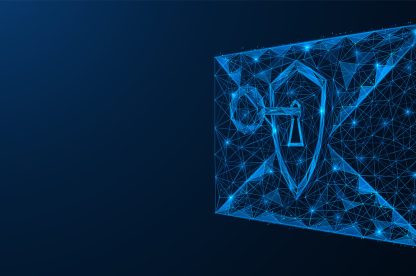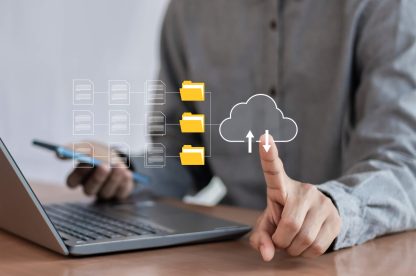Your business runs on email. But is your data really protected?
IDC predicted that by 2025, 80% of global data would be unstructured — and nearly 90% of it would never be analysed1 . Today’s estimates align. Most of the world’s data still sits untouched, unstructured and under-protected. And your inbox is a major part of the problem.
Contracts. Customer records. Financial approvals. Decision trails. They all live in email — yet most businesses treat archiving as a box-ticking exercise, relying on basic Microsoft 365 or Gmail storage and hoping nothing goes wrong.
Why most archives fall short
Native platforms weren’t built for legal integrity, forensic search or business continuity. When regulators demand records, when an outage strikes, or when a cyberattack wipes data, you’re left scrambling.
The hidden dangers of poor email archiving
- Regulatory fines and compliance failures
Regulations like GDPR, FCA, SEC and HIPAA require organisations to retain emails in an immutable, searchable format — and to produce them quickly. Most native email platforms don’t meet that bar. Failure to comply can lead to fines, penalties, and long-term reputational damage.
- Legal risks and lost evidence
- Business disruption from outages
Microsoft 365 had at least six major outages in 2023, and several more in early 2024. When email goes offline, so does access to contracts, customer comms and executive decision-making. The cost? Missed deals. Frustrated clients. Delayed projects.
- Cyberattacks and data loss
Business Email Compromise (BEC) is still one of the most financially damaging attack types — and it’s getting smarter:
- 73% of cyber incidents in 2024 involved BEC tactics (Abnormal Security)
- 71% of businesses were targeted at least once (Egress)
- BEC now makes up 10.6% of all social engineering attacks, up from 8% in 2022 (Verizon DBIR 2024)
- The average loss per BEC incident hit $120,000, with total global damages surpassing $2.77 billion in 2023 (FBI IC3)
- Vendor Email Compromise (VEC) grew 66% in H1 2024 (Abnormal Security)
What a smart archiving solution must deliver
- Tamper-proof, encrypted storage that meets legal and compliance standards
- Rapid search and retrieval across years of emails and attachments
- Always-on access, even when your main provider goes down
- Forensic-level protection against deletion or manipulation
- Seamless integration that doesn’t pile work onto IT
How TrustLayer protects your business
- Regulatory-grade archive
Meet compliance obligations with immutable, legally defensible records
- Lightning-fast search
- Uninterrupted access
- Forensic-grade protection
- Effortless deployment
Your next step
Still relying on native archiving? Still assuming your inbox is searchable enough? Still hoping for the best?
TrustLayer gives you a smarter way to protect your business-critical data — without slowing your team down.
Discover intelligent, seamless email archiving, part of TrustLayer Mail, today.
TrustLayer has been a huge asset to our business... The centralised management means I can oversee everything effortlessly, and the integrated security ensures there are no weak points. This has made my job as an IT Manager a lot easier and more efficient. I definitely recommend TrustLayer for its robust security and stellar support services.







